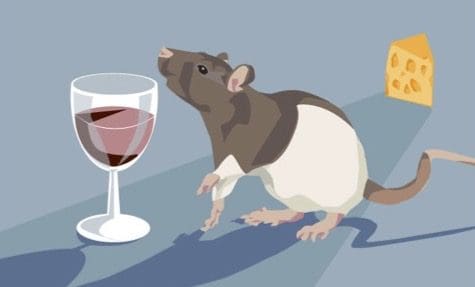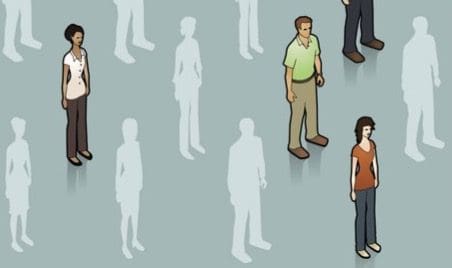

What if you stopped drinking and nothing changed?
What happens if your life does not suddenly make an about-turn, like all those stories you hear at the AA meetings? You don’t get the new BMW, the big house, the most important people in your life still don’t love you, and you don’t write the book.
You realise after four years of sobriety, AA, rehab, a doctor, a psychiatrist, a sangoma and volumes of science that the problem was never alcohol – it was always YOU. What do you do when you recognise that you are the same asshole sober as when drunk?
Well, it happened to me. And I am your average old drunk, so I’m guessing this happens to many more people than you think. But, no one speaks up because the AA has trademarked a specific, heroic narrative about sobriety. It’s a problematic storyline because it does not hold up in science or statistics. For example, recidivism in alcohol rehabilitation programmes like AA’s Twelve Steps is very high. Furthermore, the best of sciences has shown us the ‘disease’ model of addiction is wrong and the ‘chemical imbalance’ theory of depression is bullshit.
It’s just that those ‘shares’ (the personal testimonials of people in the AA) are so good. Alcohol takes the leading role as the ‘cunning, baffling and powerful’ demon. The dramatic arc is similar to those found in fantasy novels like The Lord of the Rings. The alcohol beguiles you, enters you like an evil spirit in The Omen, and changes you. The sick addict is the victim who was in the wrong place and right genes at an unfortunate time. And then, with the simplicity of surrender and an omnipotent being, you will exorcise this devil and – a glorious victory. It’s a fantastic storyline, but it’s wrong and, thus, I contend, harmful. It does not allow the problem drinker to understand their role in their behaviour adequately, and people who fail to deliver on this terrific ending give up. Many lie at these meetings or exaggerate just to fit in. Or they too soon declare themselves victorious, only to fall down a month or two later – and then blame the booze. And start all over again.
Instead, we should be telling the story of Rat Park. In the 1970’s American psychologist Bruce Alexander wanted to understand the mechanisms of what we call ‘addiction’ and the role the substance played in it. So he put rats in a cage, one by one, and offered them water bottles filled with water or ones filled with heroin or cocaine. The rats almost invariably overdosed on the drugs. At first, he thought he’d proven the power of the innate addictive quality of the drugs. But he realised his experiment was not valid. Was it the drug or the setting that was causing the behaviour? He changed the investigation. He put rats in “rat parks,” where they were amongst other rats, free to roam and play, socialise and have sex. They were given the same access to the same two types of drug-laced bottles. When inhabiting a “rat park,” remarkably, the rats preferred the plain water. Even when they did imbibe from the drug-filled bottle, they did so intermittently, not obsessively, and never overdosed. A social community beat the power of drugs!
This critical research taught us it is the setting, the social and physical environment, i.e., the PARK, not the DRUG. This observation has been confirmed by following young men returning from the Vietnam war considered hopelessly ‘addicted’ to pain medication or opioids. A year after returning home, 95% spontaneously stopped using, without intervention or significant withdrawal, while access to these drugs was easy in society. People who struggled were the ones who had pre-existing social and relationship issues going into the war or unsupportive environments when they returned. You have to fix the park. It is about putting meaningful stuff and people into it – not taking things out. The substance itself is not as powerful physically as it is commonly believed. The concept that it has you in a relentless chemical grip that is a one-way street to the gutter is incorrect. How you experience yourself in the rat cage concerning the other rats is the problem and the only lasting solution.
If I ever ran a rehab, I would tell people: ‘You are not sick; you are lonely. Your inter-rat skills are faulty; that is why you don’t fit in.” I would tell them not to get excited as it is much more complicated to fix that aching discomfort of being in your own skin than just popping a pill. It’s almost impossible. The good news is that you are not powerless. “You can do something about it, but it will be harder than you think, will take longer than you might want, and the outcome will probably be more mediocre than you figure you deserve,” I’d say. I don’t think I’ll get many patients.
‘Don’t drink less, live more,” That’s the wisdom I would share if I were ever to tell my story at an AA meeting. I may never do it out of respect for their excellent work, but I would tell people to fill their parks and cages with value and insights and to stop placing that bottle at the centrepiece of their existence. Do more things. Exercise more, or exercise differently. Eat better. Sleep better. Become radically curious about the human condition but less obsessed with your own. Find something or someone to love you and forgive you. Be prepared that it might not be your own family because if you think you are going to march out of rehab with the new bounce of Step Eight in your gait and go: “Ta-da! I’m back!” and your expectation is to be accepted as if nothing happened, you might be in for a surprise. No one owes you forgiveness or acceptance. Or love. Learn to be okay with that. These are all learned skills; learn them. Get a dog if you have to. Start practising how to love unconditionally. A second-hand one from the SPCA might be more poetic. The subtle feedback cues may spill over to how you can treat your family and colleagues better. It happened to me like that. The most significant benefit my family got from my sober phase is not me stopping drinking but me allowing that bloody dog into my bed and understanding what it takes, for the first time, to take responsibility for a relationship. It took a year of dog training to understand that everything I do, say or gesture has an effect. I saw what happens when I withdraw or don’t make eye contact. Consistency is critical, as are communication, consequence and commitment. It was never the dog’s fault that it was so unresponsive, fearful and aggressive – it was mine. Who knew? If it helps, think of people like dogs, and you want the pack to accept you. You have already thought of yourself as a rat, so this thought shouldn’t be much of a stretch. It’s okay; group mammals share similar traits. It’s okay to learn from it.
Stop measuring progress by how many days you have had a drink or not. Don’t make sobriety the goal; it’s not worth it. Sobriety is mostly shit. Life is terrifying, mainly to be honest, sober or drunk. Find a way to LIVE more; otherwise, you will die.
Finally, I would tell people to allow themselves that most foul of the four letter words, HOPE.
Not the passive, child-like hope of religion. It is not ‘surrender.’ It is an active risk assessment and understanding that specific behavioural changes are possible if you apply yourself correctly. Slowly slowly, you may see a slight softening of people’s attitudes towards you (if that type of thing is important to you.) And you might find that some topics become easier to tackle (if you ever want to write that book, for instance.) And in the fourth year of sobriety, you could experience a brief and bright moment of revelation where you think: “This can work for me. I think I’ll carry on.” Maybe it will happen to you that way. It is happening to me.
Good luck.
The views of the writer are not necessarily the views of the Daily Friend or the IRR.
If you like what you have just read, support the Daily Friend.








